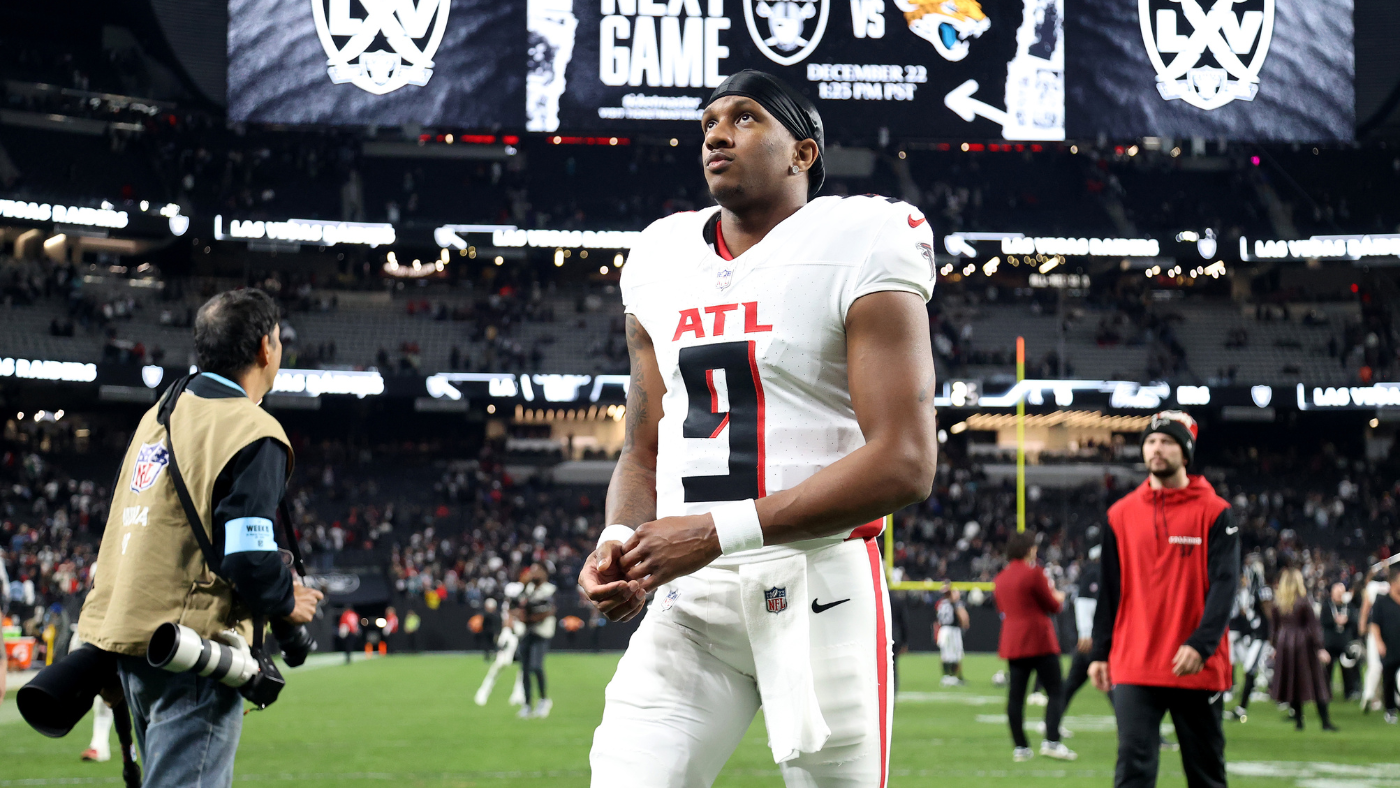
At quarterback, the Falcons could go from cooked to cooked. In the midst of an NFC South title race with three games left, Atlanta finally acknowledged that rookie Michael Penix Jr. offers a better chance to win than the quarterback the team gave $100 million in guaranteed money to in Last March, Kirk Cousins. And frankly, the Falcons can’t get any worse at the quarterback position.
Before being benched, Cousins had one touchdown and nine interceptions from Week 10 to Week 15. During that span, Atlanta ranked 26th in EPA by dropback in non-garbage time scenarios.
As Falcons fans breathe a collective sigh of relief, what exactly will they get with Penix?
The first and most obvious difference between these quarterbacks centers on traits: Penix has a significantly stronger arm than Cousins. Penix can routinely carry the ball to all levels of the field, a skill that was never Cousins’ strong point and which all but disappeared during the 2024 season.
And Penix loves to stretch defenses vertically with his live arm. His average depth of target (aDOT) was over 10 yards in each of his final five college seasons, from starting at Indiana to Washington. Cousins has never had a DOT higher than 9.4 in the NFL, and this year it was 8.0 after Week 15.
In my Penix scouting grade book before the draft, I wrote the following:
“He’s never afraid to give his WR a chance, and he’s shown flashes of incredible field positioning…he’s mostly surgical when kept clean. He wants to throw from the pocket and loves to drive the ball on off-target passes. numbers. He has a lot of arm strength to make the long shot from the long shot.”
Of course, part of Penix’s productivity was due to the scheme in Washington and the talented receivers he had at his disposal: his three best weapons were selected in the first three rounds of the 2024 NFL Draft.
Before a down and injury-plagued 2021 season at Indiana, Penix had 28 touchdowns and just eight interceptions in his first two years in Bloomington for the Hoosiers. He has long been a prolific pocket passer with an aggressive style. While there may be occasional deep misses, Penix will consistently go above and beyond in the vertical passing game.
Like Cousins, Penix is not a great improviser, although he will give the Falcons a semblance of escape. Although he ran a 4.58 average at the University of Washington’s Pro Day with a 36.5-inch vertical (both spectacular numbers for a quarterback), Penix never played at that level of explosiveness as a creator with the Huskies.
Cousins had been one of the league’s least effective quarterbacks under pressure lately, and Penix had some difficulty in that area in Washington due to his relative lack of improvisation ability. However, clean pocket play is the most predictive of a quarterback’s future success, and his efficiency when kept clean in 2024 is likely the main reason he was a top-10 pick.
Cousins had completed 71.9% of his throws at 8.0 yards per attempt with 13 touchdowns and six interceptions when not pressured in the pocket this season for the Falcons. While comparing the NFL to the Pac-12 isn’t apples to apples, Penix excelled in 2023 with a 73.5% completion rate, 9.2 yards per attempt average, and 30 touchdowns to six interceptions when kept clean. And Cousins had only been pressured on 32.6% of his throws to date, the 11th-lowest rate among 41 qualified quarterbacks.
I summarized my report on Penix before the draft with this:
“Some clear limitations in his game, but some clubs will love his aggression and precise hitting on the field.”
By going to Penix, the Falcons have added an assertive element to their passing offense with a quarterback who has the physical talent to hit challenging throws in the middle and downfield much more regularly than the veteran he is replacing.





















































